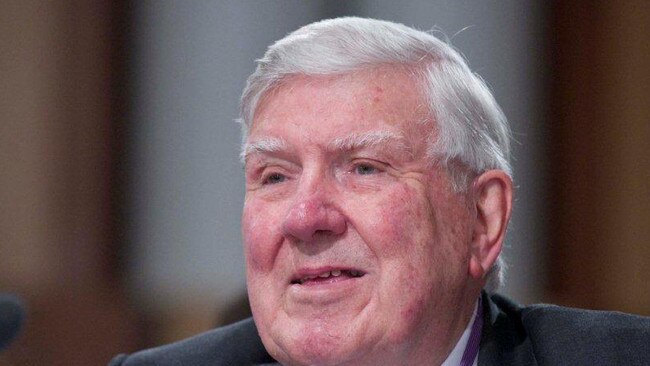Seniors advocate Everald Compton far from retiring
Everald Compton has just turned 90 but that’s not going to stop him.

Everald Compton has just turned 90 but that’s not going to stop him.
There’s plenty left to do.
“I believe if I stop working, I’ll die, so I think it’s a smart move to keep working,” he said. “I’ll be in Canberra in a couple of weeks terrorising the pollies about a couple of things, including what they can do for older Australians in terms of affordable housing.”
Compton says he is “chuffed” to be recognised as an Officer of the Order of Australia in the Queen’s Birthday Honours List, his second gong after becoming a Member of the Order of Australia in 1993.
“I’m 90, so I don’t think I’ll last long enough for another upgrade,” he says.
Compton’s public service, especially his advocacy on behalf of older Australians, is legendary.
He was a founding board member of National Seniors in 1976, and served as chair of the organisation from 1985 to 2010.
Convincing the federal government to fund the biggest rise to the Age Pension in its 100-year history in 2008 counts among his most significant advocacy achievements, he said. So too having the statutory age limit on company directors removed.
His “retirement” in 2010 was short-lived as he was immediately brought on by the Labor government to chair an advisory panel on positive ageing, which he did for another three years.
“That work was all about demonstrating how an ageing population could be an asset to the economy and not a liability if the right policies were put in place,” he said. “Don’t forget, it’s not until 2050 that ageing in Australia will reach its peak, and we have to work out better ways to engage them. They don’t all just want to sit back and retire for 40 years.”
His more recent advocacy energies have turned to convincing the Queensland government to accept voluntary assisted dying. He is the honorary campaign leader, Dying with Dignity Queensland. And he has recently been made an adjunct professor at the University of Queensland, where he is chair of an advisory panel tied to a new Co-operative Research Centre on Longevity.
“All these things keep my mind alive,” he said. “I have to accept that I need to slow up a little bit, but that just means I am picking out the most important things to get behind.”




To join the conversation, please log in. Don't have an account? Register
Join the conversation, you are commenting as Logout